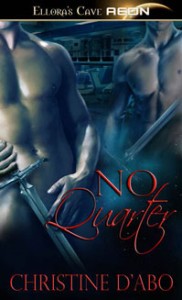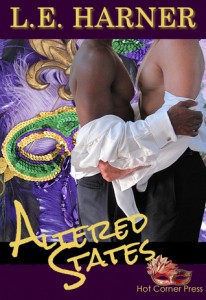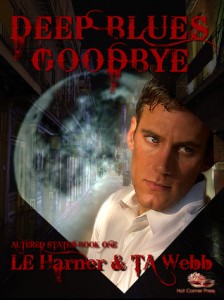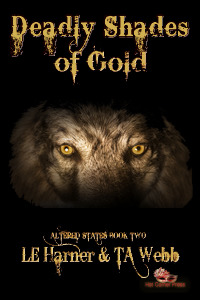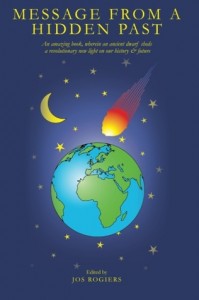 Editor Jos Rogiers sent me a copy of Message From a Hidden Past….or, more completely, Message from a Hidden Past: An amazing book, wherein an ancient dwarf sheds a revolutionary new light on our history & future. I’m not sure if that’s all meant to be title or not, though.
Editor Jos Rogiers sent me a copy of Message From a Hidden Past….or, more completely, Message from a Hidden Past: An amazing book, wherein an ancient dwarf sheds a revolutionary new light on our history & future. I’m not sure if that’s all meant to be title or not, though.
Description from Amazon:
More than 3,200 years ago, a learned dwarf was pricked with the Sleeping Thorn and fell into a deep slumber in a secret cave somewhere on Earth. When he finally awoke, towards the end of 2009 or in the early part of 2010, he started to carry out the task he was charged with by his king: to reveal the truth about a hidden chapter of our past, that misunderstood period of our history when the so-called “gods” held sway over the world. He wrote an amazing book about this subject, a book that throws a completely new light on world history and human existence: “Message from a Hidden Past.” According to the author, the gods were neither supernatural beings nor products of the human imagination, let alone extraterrestrials. He describes them as hominids of flesh and blood, belonging to the further evolved species of Homo supersapiens. They were smarter, taller, and much more beautiful than humans. They were the true founders of civilization. The book explains their origins, describes their culture, and pictures the land in which they lived. Most revealing, it relates how the gods became involved with humans and the disastrous consequences of that fateful interaction. The dwarf recounts the story of a great world war that took place at the end of the Bronze Age and of an epic calamity that finally extinguished the Era of the Gods. Despite their physical destruction, the lore and images of the gods lived on in poetry, song, and myth. The book’s last chapters deal with what remains of them today, and discuss ancient prophecies that foretell their return at an uncertain date in the future.
Review:
Having just read the final page of this book, I am tempted to lean my head back, sigh, and say, ‘Finally, I’m finally finished with this book.’ But that just wouldn’t be fair to it. It really is well written, well-researched, and has an interesting premise. The problem is that I just couldn’t hustle up any real enthusiasm for it and found myself chipping away at it between things I would rather have been reading. I’m generally a literary monogamist, preferring to read only one book at a time, but in the time it took me to get this one read I also read over a dozen other books.
After quite a bit of self-reflection, I decided that my primary complaint was that I didn’t know the intent of the book. Is it meant to be a fictional account of an alternative past, a true account using an interesting narrative technique of a learned dwarf to relay its information, or taken at face value, and the reader is expected to believe that a 3000-year-old dwarf is kindly passing his knowledge to the lowly human race. I just don’t know and that bothered me…a lot. The result is that as I read the book, I didn’t know how to mentally catalog the information presented to me. I don’t mean to suggest that I have any sort of Hannibal Lecter-like memorization method, but like most humans, I do have a certain mental organization that requires at least a modicum of labeling. I just didn’t know where to put this book or its information…or should I say its story. See I’m still not sure, even having finished it.
Having said that, the author (whomever he may be) does an amazing job of running a single continuous thread through the history and mythology of most of the world. The legends he managed to make fairly convincing arguments of similar geneses are incredibly diverse. He supports a lot of his argument with linguistics, entomology, and a number of texts from Classic Antiquity. Some of this made for pretty dry reading, especially in the beginning, but it was interesting to see where he would go with it.
I’ll also concede that the book has a noble aim, and I’m not trying to suggest that it doesn’t accomplish its goals. As our learned dwarf narrator discusses the world prior to the assention of homo sapiens he does highlight in relief what some might consider the proper way to live. I, however, found the whole thing horribly condescending. Maybe it’s a form of speciesism, but I had a distinct problem with the fact that the ‘gods’ or homo supersapiens outperformed humans (more accurately, homo sapiens, but we’ll go with human for simplicities sake) in everything when the basis for superiority was on such base human standards. There was the appreciation of visual and harmonic symmetry or beauty, honesty, trustworthiness, and adherence to a moral and societal norm, not to mention the law. Then there was their appreciation of gold and gems. It was all just too human.
Further, up until the end of the book, where the narrator speaks of gods in the context of modern religions, I thought that if the reader replaced the words homo supersapien with White Man and homo sapiens with Black Man (or any other two races/nationalities/etc.) it would all still have been disconcertingly familiar. I’m not saying that this author intended this in any way, but am rather making a comparison. In both cases, the argument is being, or sadly has been, made that a superior race took a ‘lesser’ race under their wing and modernized, civilized, or improved them. I’m just not comfortable with that discussion, regardless of what species is involved.
My discomfort only increased when the result of the interaction between the two species had such a devastating effect on the first as if to suggest that the separation of the two groups would have been better from the beginning. Again, I’m not trying to say that the book had any racist, nationalist, or ethnocentric undertones. The narrator isn’t even supposed to be human, let alone have an opinion on such things. But there was a definite feeling of haughty arrogance on the part of the dwarf (on behalf of the gods), and humans were certainly not part of the ‘in-crowd.’
I get it. If we could all just behave more like the gods and less like humans, the world would be better off. That’s probably a true statement. Unfortunately for us, according to the narrator, humans just don’t have what it takes. We’re biologically inferior. There is no assertion of different but equal in this book. Instead, there is a very firm value judgment, and in our modern age of subjectivity and liberalism, this is a rare and dangerous thing.
I’ll be the first to say there are times in which uncomfortable, even dangerous, discussions have to take place for the betterment of mankind. But if, as suggested here, our deficiency is in our genetics instead of our cultures, then we can’t correct it. We’re not gods. We never will be (barring some interesting reincarnations) so I’m left wanting for a solution. Perhaps I’ve taken an unusually negative view of all of this. I’d be interested to see what others think.
